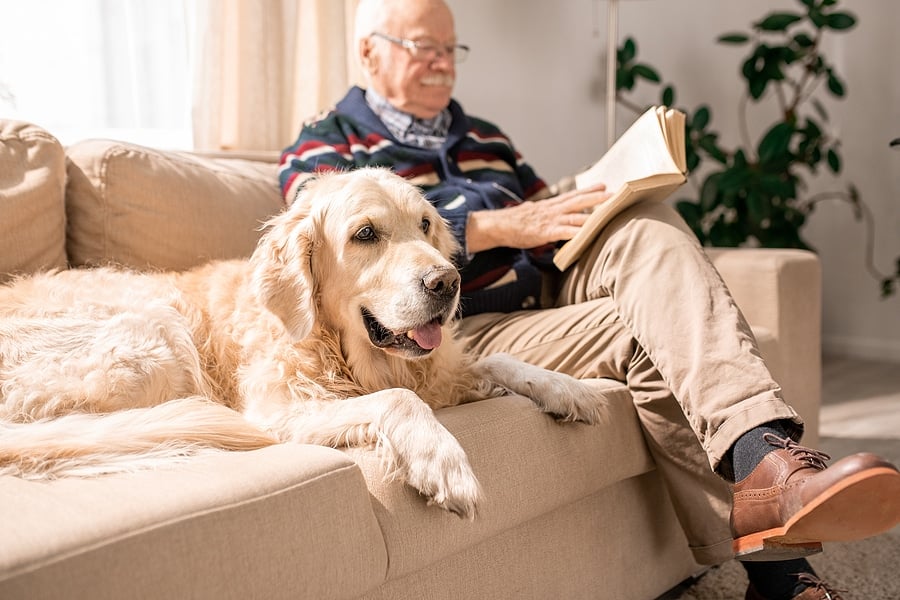Can Companion Animals Help Tackle Loneliness?

One of the biggest issues facing older people is loneliness and isolation, with figures from Age UK showing that one in 14 of those over the age of 65 would describe themselves as often being lonely.
Research from the charity, published in December last year, found that 270,000 older people go a week without speaking to a family member or friends and this group is almost three times more likely to be lonely than those who do speak to loved ones more frequently.
It was also found that loneliness is linked to accelerated frailty and an elevated risk of both physical and mental illnesses, including incident coronary heart disease, stroke, dementia, depression and anxiety.
Maintaining social connections with friends and relatives, as well as remaining active in the local community wherever and whenever possible, is therefore essential as we get older, but there are other ways in which you can keep loneliness at bay… and getting a companion animal could be a wonderfully enriching solution.
How can pets help older people?
There are many benefits that pets can bring to people of any age but older demographics in particular are likely to enjoy the companionship that they represent, particularly if loneliness is an issue that they’re currently facing.
Animals are a true source of joy, providing their owners with comfort when needed and giving them a sense of purpose, which is especially important as we get older. Having to care for an animal, no matter what it is, helps to add structure to days that might otherwise be lacking in such, helping you to establish a routine.
Depending on the pet, they can also help you with social interactions. A dog, for example, will need walking so aside from the companionship that the animal itself will deliver, heading out and about to ensure they get much-needed exercise means you’re more likely to meet other people.
What is important, however, is that you choose a pet that suits your particular circumstances and lifestyle. If you have mobility issues, for example, a high-energy dog would perhaps be an unwise choice.
Cats are often the preferred option for older people because they’re more independent than dogs and don’t need quite as much looking after, while still providing company in the same way.
And don’t forget about other smaller animals like rabbits, guinea pigs, birds – or even fish! There are many pets to consider that could make a very real difference to your health and happiness.
Whatever animal you do go for, you’re sure to find that your mental health enjoys a big boost as a result. Research shows that pets can help you feel less stressed, help you cope with both physical and emotional pain, help you feel loved and enable you to enjoy life more… so if you are struggling at the moment, getting a pet could be a great way to give yourself a lift.